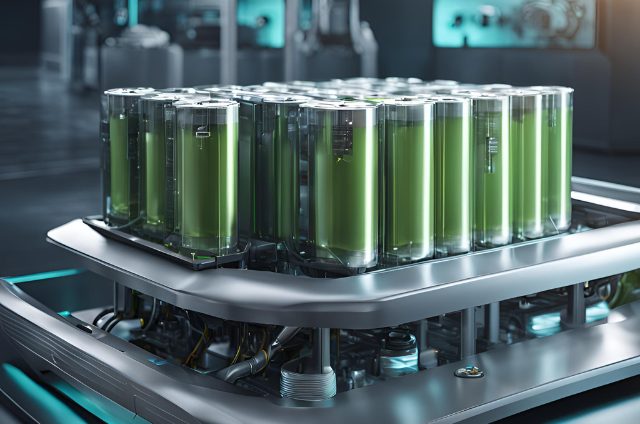A Shift Toward Sodium-Ion Batteries
Sodium-ion batteries, made from inexpensive and abundant salt, are gaining momentum as a potential alternative to lithium-ion batteries. While their lower cost and sustainability are undeniable advantages, challenges like energy density, weight, and charging efficiency have slowed their adoption for electric vehicles. However, a breakthrough involving vanadium is changing the game, bringing sodium-ion technology closer to rivaling lithium-based solutions.
Vanadium’s Role in Sodium-Ion Advancement
A research team led by the University of Houston, in collaboration with French scientists, has introduced sodium vanadium phosphate as a key material in sodium-ion batteries. This innovation improves energy density by 15%, reaching 458 Wh/kg compared to older sodium-ion batteries at 396 Wh/kg. Vanadium enables efficient movement of sodium ions, maintaining stability during charging and discharging cycles. This breakthrough also delivers a continuous voltage of 3.7 volts, surpassing previous sodium-ion formulas.
Initial Applications and Future Potential
Although the immediate focus is on stationary energy storage, the potential for EV applications is promising. Sodium-ion batteries are nearly 50 times cheaper than lithium alternatives, with sodium readily available—even from seawater. Their high thermal stability reduces fire risks, making them safer for large-scale use. As the technology matures, these batteries could redefine affordability and sustainability in the EV market.
The LENS Consortium: Pioneering Sodium-Ion Solutions
To accelerate sodium-ion advancements, the U.S. Department of Energy (DOE) has launched the LENS consortium, backed by a $50 million grant. Led by Argonne National Laboratory, this initiative aims to develop sodium-ion batteries for both EVs and grid storage. Collaborating with eight academic institutions, including the University of Houston, the consortium is working on enhancing energy density to compete with lithium-based batteries.
Strengthening the Supply Chain
Sodium-ion batteries offer an opportunity to diversify and secure the domestic battery supply chain. Unlike lithium-ion batteries, they require no cobalt or nickel, critical elements often sourced from volatile markets. With the U.S. producing a significant portion of the world’s sodium chloride, the country is well-positioned to lead in sodium-ion innovation.
A Path to Affordable EVs
As sodium-ion technology progresses, it promises to lower EV costs and expand accessibility for budget-conscious buyers. With advancements like vanadium-enhanced batteries, the dream of low-cost, sustainable EVs is becoming a reality—one charge at a time.



